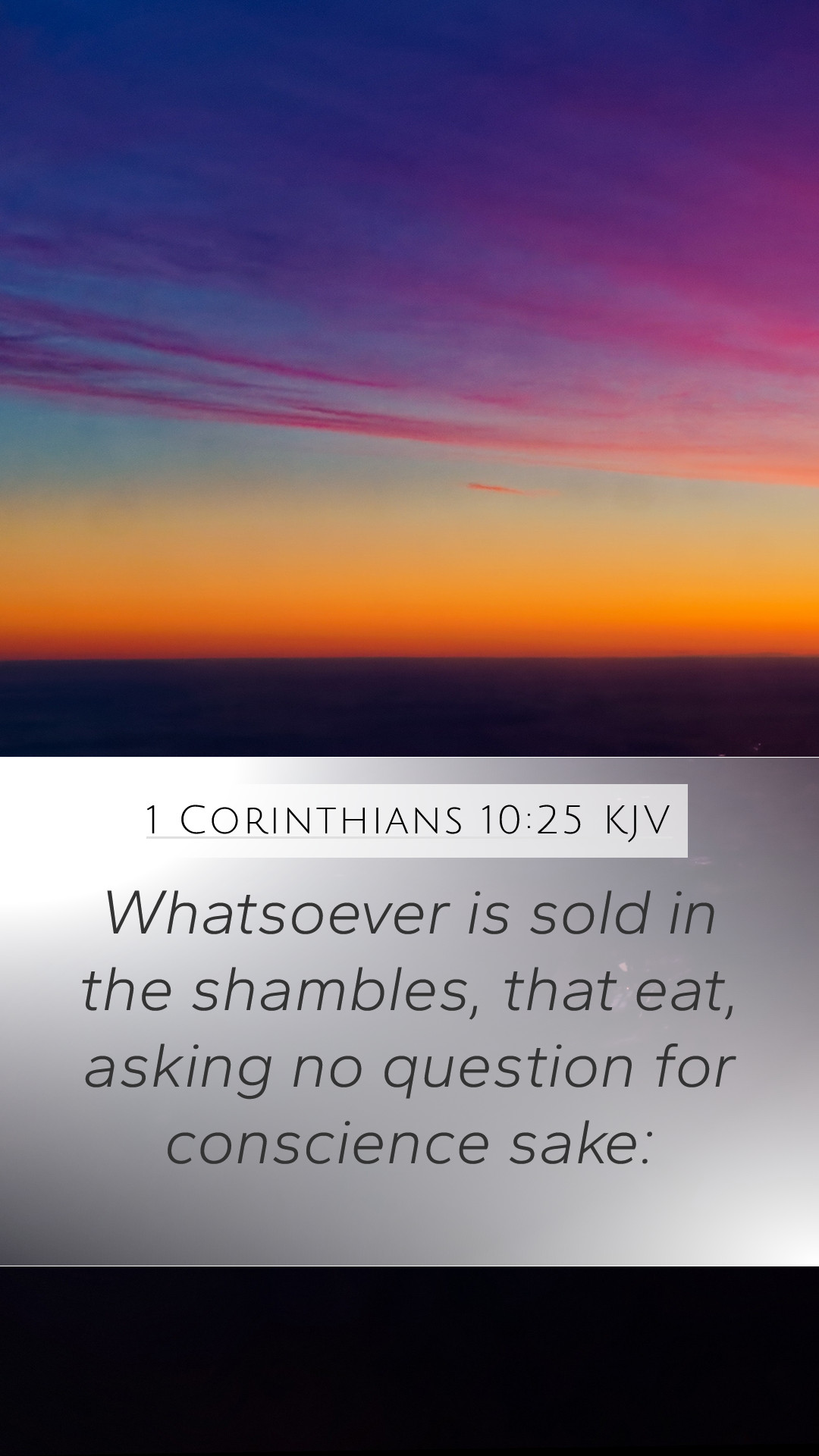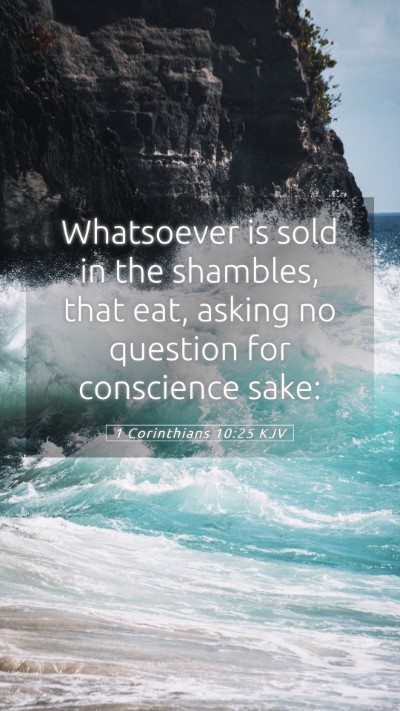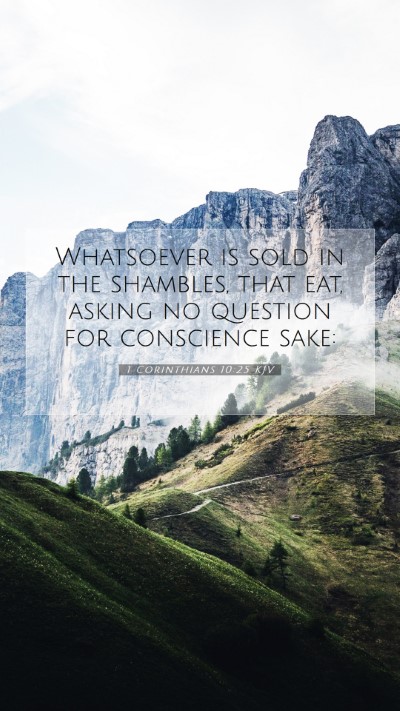Understanding 1 Corinthians 10:25: A Comprehensive Bible Verse Commentary
1 Corinthians 10:25 states: "Whatsoever is sold in the shambles, that eat, asking no question for conscience' sake."
This verse is part of the Apostle Paul’s discourse on the proper conduct of Christians in relation to food, particularly meat offered to idols, amidst the complex cultural interplay of the Corinthian society.
Verse Meaning and Context
The context of 1 Corinthians 10:25 relates to Paul’s exhortation regarding idolatry and the ramifications of consuming food that may have been sacrificed to idols. Paul addresses the Corinthian church, reminding them of their liberty in Christ while also encouraging them to be considerate of others in their community.
Key Insights from Public Domain Commentaries
-
Matthew Henry:
Henry stresses that this directive points to the freedom believers have in Christ rather than adhering to strict legalism. The emphasis is on not questioning the source of food when it leads to enjoying God's blessings, focusing instead on the purity of the believer's conscience.
-
Albert Barnes:
Barnes elaborates that Paul's instruction is tightly woven with the notion of freedom from the Law. He highlights that as long as there is no direct defilement in consuming such meat, and one acts in accordance with their understanding of God’s intent, there is no cause for concern about conscience. Barnes also elucidates that this is a pragmatic approach that avoids unnecessary scruples where one's faith is concerned.
-
Adam Clarke:
Clarke implies that the nature of the meat—whether it was offered to idols—is immaterial if it does not compromise one’s faith. He emphasizes that believers should act without raising doubts about their actions, offering an interpretation steeped in the conscience of Christian liberty that ought to guide one's choices.
Practical Applications
Understanding 1 Corinthians 10:25 invites believers to evaluate their own practices regarding food and cultural norms. Here are some ways this can be applied:
- Applying Freedom: Grasp the balance between Christian liberty and being mindful of others who might be affected by a believer's eating habits.
- Community Consideration: Engage in discussions about what is acceptable in Christian fellowship without causing others to stumble.
- Personal Reflection: Reflect on one’s conscience and convictions when making choices about food consumption in different cultural or social settings.
Cross References for Deeper Understanding
- Romans 14:14: "I know, and am persuaded by the Lord Jesus, that there is nothing unclean of itself..." - A discussion about clean and unclean foods and the believer's conviction.
- 1 Corinthians 8:4-13: Provides insight into knowledge versus love regarding food offered to idols, emphasizing how one’s understanding impacts others.
- 1 Timothy 4:4-5: Discusses that every creature of God is good and nothing should be refused if received with thanksgiving.
Conclusion
In sum, 1 Corinthians 10:25 promotes a perspective of Christian liberty intertwined with responsibility towards one another's faith. It is a verse that becomes crucial in discussions regarding how believers navigate cultural quandaries, especially in the context of food consumption and the underlying spiritual implications.
For anyone exploring the meaning of Bible verses, this verse serves as a valuable study topic under the broader category of Bible verse interpretations and Bible study insights. It encourages deep reflection on the understanding of Scripture while also fostering community through the application of love and consideration in everyday choices. The essence of Bible study lessons emphasizes that the teachings of Jesus and the apostles guide our conduct in a manner that reflects both freedom in faith and love for others.


